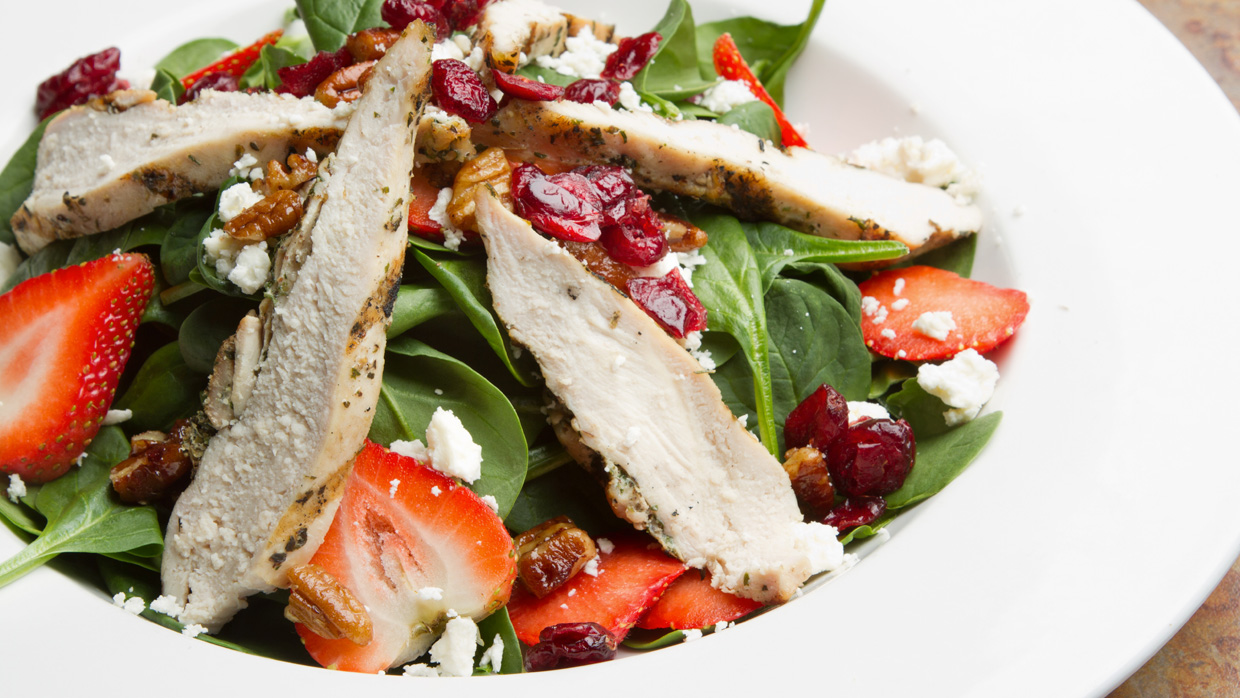How to Support Your Immunity by Eating Well

Cordialis Msora, is a regional nutrition manager at Sodexo, providing expert support for registered dietitian nutritionists working in hospitals across the western United States. She is also a media spokesperson for the Academy of Nutrition and Dietetics.
We asked her to help us understand how important nutrition is, and isn’t, when it comes to immunity.
Q. Can good nutrition prevent someone from getting sick?
CM: What nutrition science tells us is that undernourished bodies experience higher rates of infection than well-nourished ones. In addition to typical precautions during flu and cold season, it certainly couldn’t hurt to feed your body a diet filled with nutrients that may support its ability to ward off illness.
Q. Which nutrients are most important for supporting immunity?
CM: There are several nutrients that are believed to support immunity, including vitamins A, C and E. Zinc and protein help the body heal and recover. Probiotics, found in fermented foods such as kombucha, yogurt, kefir and kimchi can also enhance the immune system and prevent pathogens from invading the body. Other nutrients that may be beneficial in supporting immunity include folate, iron, selenium and vitamin B6.
Q. How can someone best incorporate them into their diet?
CM: Following a balanced diet loaded with an array of colorful fruits and vegetables, lean proteins such as turkey, fish and legumes and whole grains, like brown rice, is the first and most important step in getting these immune-supporting nutrients.
One simple way to do this is to use the My Plate model endorsed by the United States Department of Agriculture (USDA). Start by filling half of your plate vegetables and fruit, cover ¼ of the plate with unprocessed starches or whole grains, like roasted sweet potatoes or whole wheat pasta, and fill the remaining ¼ plate with lean protein, such as chicken breast. The more colorful your plate, the greater the variety of nutrients.
The jury is still out on the effectiveness of supplements and dietitians agree that a balanced diet is the foundation of getting nutrients.
Q. Are there any foods/drinks that harm immunity?
CM: Studies suggest that consistent intakes of foods that are high in calories and fat as well as those that are processed can disrupt your immune system and increase inflammation in the body. Such foods include sugar-sweetened beverages, fried foods and many packaged snack foods such as chips, cookies and candy. While it is okay to enjoy these foods on occasion, one should always create health by choosing a diet filled with numerous, vibrant fruits and vegetables complemented with the whole grains and lean proteins. This type of diet is essential for both a strong immune system and overall health.
Q. What if you are feeling sick, are there any foods that can help you fight off a virus?
CM: Ensuring the body remains hydrated is a priority so choosing foods that are rich in fluids is extremely important. These might include soups, teas and smoothies that contain plenty of vegetables and some fruit.
Some of your favorite comfort foods during illness may contain immune supporting nutrients. Take chicken noodle soup, for instance. Grandma may have been onto something when she fed it to you. The chicken contains both protein and zinc needed in the healing process. Vegetables such as carrots add vitamins A and C while the warm broth introduces congestion-easing fluids. Add a little bit of garlic to the soup and you introduce allicin, a compound found in garlic that fights pathogens.
Q. Any other guidance?
CM: Your diet works in tandem with other healthy behaviors to promote a strong immune system. Make sure that you are physically active and get at least 7-8 hours of quality sleep each night to give your body the time it needs to recuperate from all the day’s stresses and activities.